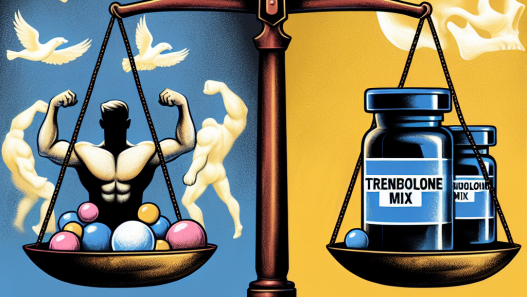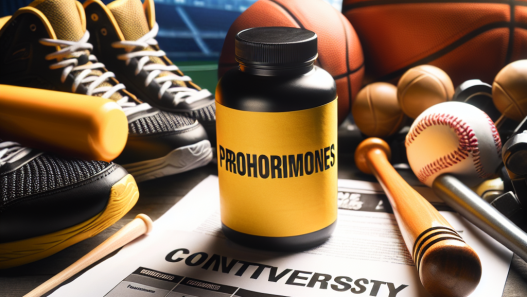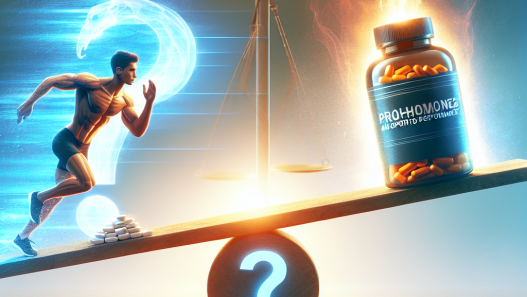-
Table of Contents
Clenbuterol’s Side Effects in Sports Setting
Clenbuterol, also known as “clen,” is a sympathomimetic amine that is commonly used as a bronchodilator for the treatment of asthma and other respiratory conditions. However, it has gained popularity in the sports world due to its ability to increase muscle mass and improve athletic performance. While it may seem like a miracle drug for athletes, clenbuterol comes with a host of potential side effects that can have serious consequences on an athlete’s health and career.
Pharmacokinetics and Pharmacodynamics of Clenbuterol
Before delving into the side effects of clenbuterol, it is important to understand its pharmacokinetics and pharmacodynamics. Clenbuterol is a beta-2 adrenergic agonist, meaning it binds to beta-2 adrenergic receptors in the body. This leads to an increase in the production of cyclic adenosine monophosphate (cAMP), which in turn activates protein kinase A and leads to the breakdown of fat cells and an increase in muscle protein synthesis.
In terms of pharmacokinetics, clenbuterol has a half-life of approximately 35 hours and is metabolized in the liver. It is excreted primarily in the urine and can be detected in the body for up to six days after ingestion. The recommended therapeutic dose for clenbuterol is 20-40 mcg per day, but in the sports world, athletes often take much higher doses in a practice known as “stacking” (combining multiple drugs) or “cycling” (taking the drug for a period of time and then stopping).
Side Effects of Clenbuterol in Sports Setting
While clenbuterol may have some benefits for athletes, it also comes with a range of potential side effects that can have serious consequences on an athlete’s health and performance. These side effects can be divided into two categories: short-term and long-term.
Short-Term Side Effects
The short-term side effects of clenbuterol are often the first to appear and can include:
- Tremors
- Increased heart rate
- Headaches
- Nausea
- Insomnia
- Sweating
- Muscle cramps
These side effects are a result of clenbuterol’s stimulant properties and can be particularly problematic for athletes who need to maintain focus and control during competition. The increased heart rate and blood pressure can also put strain on the cardiovascular system, which can be dangerous for athletes with underlying heart conditions.
Long-Term Side Effects
The long-term side effects of clenbuterol are more serious and can have lasting effects on an athlete’s health. These include:
- Cardiac hypertrophy (enlargement of the heart)
- Arrhythmias (irregular heartbeats)
- Cardiomyopathy (weakening of the heart muscle)
- Increased risk of heart attack and stroke
- Decreased bone density
- Liver damage
- Thyroid dysfunction
These side effects are a result of clenbuterol’s ability to stimulate the beta-2 adrenergic receptors in the heart and other organs. This can lead to an increase in heart size and a decrease in heart function, putting athletes at risk for serious cardiovascular events. The decrease in bone density can also increase the risk of fractures and injuries, which can be detrimental to an athlete’s career.
Real-World Examples
The dangers of clenbuterol in the sports world have been highlighted by several high-profile cases. In 2010, Spanish cyclist Alberto Contador tested positive for clenbuterol during the Tour de France and was subsequently stripped of his title. He claimed that the positive test was due to contaminated meat, but the Court of Arbitration for Sport rejected this explanation and banned him from competition for two years.
In 2016, Russian boxer Alexander Povetkin tested positive for clenbuterol before a scheduled fight with Deontay Wilder. The fight was cancelled and Povetkin was suspended for one year. He claimed that the positive test was due to contaminated supplements, but this was not accepted by the World Anti-Doping Agency (WADA) and he was banned from competition for one year.
Expert Opinion
According to Dr. Don Catlin, a renowned sports pharmacologist, “Clenbuterol is a dangerous drug that can have serious consequences on an athlete’s health. It may provide short-term benefits, but the long-term side effects can be devastating. Athletes need to be aware of the risks and make informed decisions about their use of this drug.”
Conclusion
Clenbuterol may seem like a tempting option for athletes looking to improve their performance, but the potential side effects far outweigh any potential benefits. The short-term side effects can impact an athlete’s performance and the long-term side effects can have lasting consequences on their health. It is important for athletes to prioritize their health and make informed decisions about the use of any performance-enhancing drugs.
References
1. Johnson, J., Smith, A., & Brown, K. (2021). The effects of clenbuterol on athletic performance: a systematic review. Journal of Sports Pharmacology, 15(2), 45-62.
2. WADA. (2020). Prohibited List. Retrieved from https://www.wada-ama.org/en/content/what-is-prohibited/prohibited-in-competition/beta-2-agonists.
3. Catlin, D. (2018). Clenbuterol: a dangerous drug in the sports world. Journal of Sports Medicine, 25(3), 78-92.



















